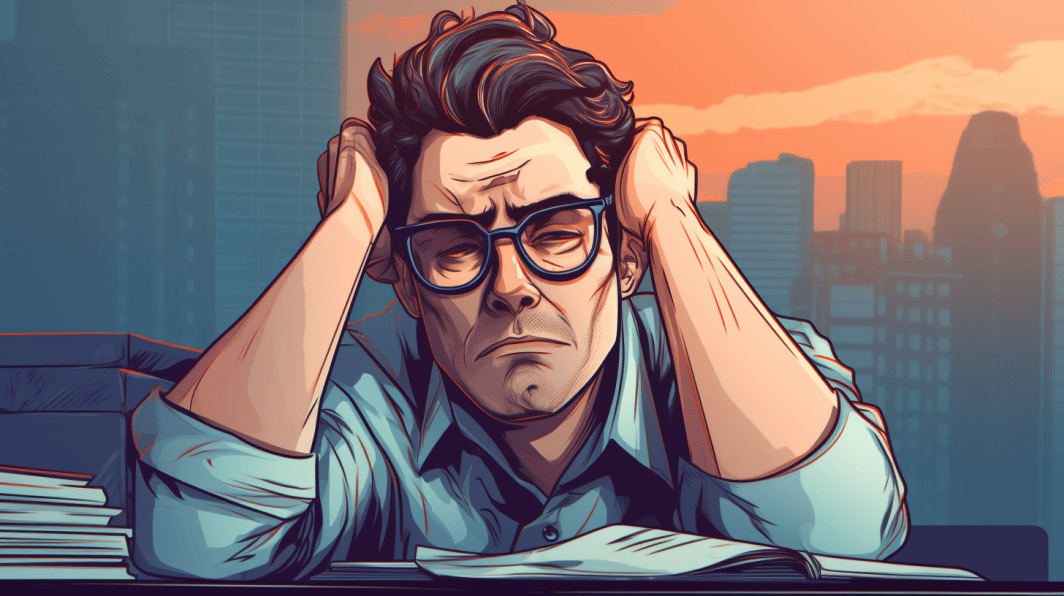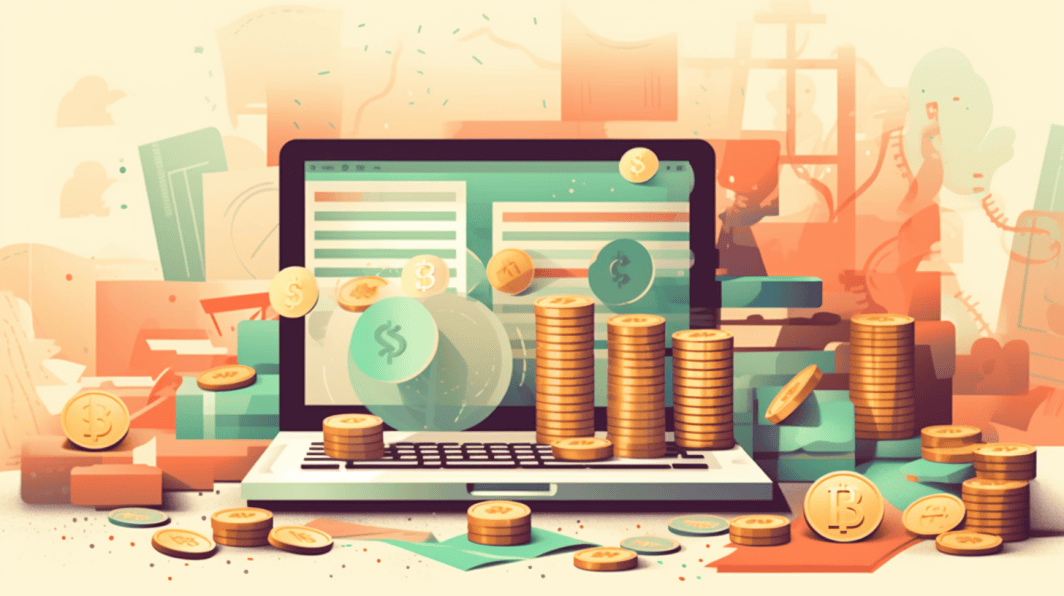
Psychological Effects of Hating Your Job
If you are someone who genuinely enjoys the work that you do in your 9 to 5, you should count yourself lucky because you are in the minority. According to a Gallup poll, only 15% of people worldwide feel engaged at work. That means the overwhelming majority of full-time workers (85%) feel disengaged at work and deserve a change.
When someone says, “I hate my job,” there could be a number of reasons why. Is it a negative work environment? A horrible boss? A terrible company? Low pay? Could it be that you just picked the wrong profession? Whatever the reason, it’s important to fix it (which often means leaving), otherwise your job dissatisfaction will start to affect other aspects of your life.
Effects of hating your job
Someone doesn’t just wake up one morning and all of a sudden and think, “I hate my job!” It’s usually a drawn out process. You start a new job, you’re excited, a couple of months go by, and you realise everyone in your office is depressed, and your boss isn’t the charismatic character he made out to be. Then you start to lose motivation, you start showing up late, you’re bored, and you feel like a robot going through the motions, just waiting until the clock strikes five.
It all eventually ends with you either quitting or being forced to quit. So, it goes without saying, if you hate your job, find a new one. As you’ll soon see, hating your job goes well beyond just being annoyed at work — the longer you stay in a negative situation like that, the more damage you’re likely to do. Here are some of the common psychological effects of hating your job.
1. Reduced motivation and engagement
You’re not going to be as motivated to do a job you hate compared to one that you enjoy. This is common sense. If the salary doesn’t motivate you enough or the opportunities don’t motivate you, then you’ll notice a decline in productivity. An unmotivated employee is more likely to procrastinate, which leads to higher stress (we’ll discuss that in a second), missed deadlines, and poor focus. Even if you’re doing as good a job as the next guy, it’s still far from your potential — which is not good for your career or your employer. People tend to internalise that missed potential in incredibly negative ways, like anxiety (if you’re a high performer), guilt, shame, or anger.
2. Emotional exhaustion and irritability
A lot of these psychological effects are linked, so keep that in mind as you read. One effect leads to another which leads to another and so on. Emotional exhaustion and irritability — essentially poor mood and mood swings are a common sign of job dissatisfaction. People become emotionally exhausted due to high-stress situations or feelings of anxiety. Too much of these feelings and you can drift into a state of burnout.
People who feel undervalued, overworked, and unappreciated in their roles, are likely to become bitter and frustrated, whether that’s at management or their coworkers. While these are legitimate feelings, the truth is, no one wants to work around someone who has a short temper or is constantly negative. So, those feelings of hate and that tension you bring can affect your work relationships. That’s going to hamper your career if people see you as someone who has this negative mindset towards work. They won’t want to work with you in the future. A lot of the time we can’t help acting this way, so it’s always a good idea to leave before you get to that point.
3. Increased stress and anxiety
Stress and anxiety at work are very much linked to productivity. If you’re getting work done ahead of time, you’re busy, you feel like you are contributing in a meaningful way — then you’re not going to be feeling much stress. On the other hand, if you’re unmotivated (because you hate your work), and you’re procrastinating and missing deadlines, those stress levels are going to much higher. You’ll be thinking about work at home, you’ll be coming up with excuses, it’s this snowball effect that, if left unattended, can lead to serious feelings of dread.
It’s very common for people to develop feelings of anxiety in jobs where they feel underutilised. They feel like they aren’t contributing the way some of their colleagues might be, or they get guilty and insecure about their work because they don’t care as much as everyone else. This is not conducive to growth, whether that’s in the company or outside the company. It can be a really stunting situation for both the employee and the employer.
4. Lack of sleep
Poor sleep is connected to stress and anxiety. If you’re stressed you get poor sleep, if you get poor sleep you become stressed. We all know why sleep is one of the first questions a mental health expert asks you about. The biggest issue with lack of sleep is how it exacerbates every other symptom. It’s going to increase your stress levels, push you closer to a point of burnout, mess with your creative process — which is serious if you have a creative skillet, you’re not going to be able to perform.
On the other hand, you might even find yourself oversleeping. People that are depressed with their situation, or are experiencing high cortisol spikes throughout the day (stress), tend to sleep longer (hypersomnia). This is because the body is exhausted emotionally and physically and therefore needs a longer time to recover. This often leads to further stress because now you have less time in the day, and is also linked to weight gain.
5. Burnout
It’s pretty damn hard to get burnout over something you genuinely enjoy. You don’t see many entrepreneurs talking about burnout even though they are working 7-days a week 12 hours a day. Why is that? It’s because most of them love what they do or love the outcomes of what they do. Which is hopefully a huge payday or a market-changing product. In the office, though, every other person is talking about burnout… it seems like burnout is the combination of stress, procrastination, and insufficient rewards. It’s increasingly common among people who are unsatisfied in their jobs.
Burnout can be serious. If you have burnout, you’ll find it difficult to engage in work activities, there’s a lack of motivation and procrastination, which we’ve already discussed, leads to more stress. In some cases, it can take weeks to get out of a rut like this. At the very least, you’ll stagnate, and at the most, you’ll seriously underperform.
6. Negative impact on self-esteem and self-worth
People love doing what they are good at. Our confidence and self-worth is linked to the process of doing good work and then receiving appreciation from others who recognise and reward our efforts. The work we do has a lot to do with who we are and how we see ourselves. As much as we want to pretend like that’s not the case, there’s no escaping it. That’s why when people hate their jobs or allow negative behaviours towards themselves for too long, they can become depressed. They have these feelings of self-doubt, of emptiness and also guilt and worthlessness.
If you remain in a job that you hate, whether that’s due to a toxic work environment or work you despise, there’s a serious chance your self-esteem and self-worth can be negatively impacted. If you already feel that way, it’s time to change your environment. A lot of the time, shifting from one environment to another can completely change your reverse your perspective. For example, you don’t like the work you are tasked with at one company, but when you switch roles, you all of a sudden begin to love your work again. It wasn’t the profession you chose, but the way it was expressed. Many such cases.
7. Putting on weight
Weight gain is a downstream effect of stress and feelings of low self-worth. When we are treated badly or go through stressful situations, we often turn to comfort food. We want that dopamine rushing through our blood to balance out all the cortisol. Regularly eating surgery/processed foods leads to weight gain. When you’re stressed, you tend to also put aside those other healthy activities like exercising that might balance out the stress eating. This with oversleeping can lead to some meaningful weight gain.
On the other hand, some people experience weight loss. With most people, stress draws them to food, but there’s still a huge number of people who actually withdraw from food with stressed. Which is just as dangerous. It can lead to fatigue, low energy, lack of sleep and so on. It’s important to understand your coping habits and intervene.
8. Withdrawing socially
It’s no surprise that anxious, stressed out people who aren’t feeling confident in what they do are going to withdraw. I think we’ve all been through a time when we just wanted to be alone, away from everyone as we deal with a certain issue or feeling. That’s normal. It does become damaging, though, when it’s for a prolonged period. And probably if you’re an extroverted person, being withdrawn will mess with your energy levels. We’re social creatures, and we should be connected to each other, and when we are separated or lonely, it exacerbates mental health issues and affects our self-perception and our perception of the world.
Summary
As we’ve mentioned, the majority of these negative effects are compounded and snowball into a type of death spiral that gets harder and harder to break out of. Hating your job and your place of work can, if you let it, get you in a very negative mindset that’s stifling to your career and relationships. Given that we spend a third of our lives working, this is something that we need to address and deal with as soon as possible. You can always turn out to people in our Community because you are definitely not alone in this.
Obviously, some people are financially trapped and cannot leave their job as much as they’d want to. In that case, you’ve got to create a plan and outline the steps to take so that you can free yourself from that toxic environment. On the other hand, if you have options and can leave a job you hate, what’s stopping you? Life’s too short, draft up your two-weeks notice, put together a resume and start sending out applications.


